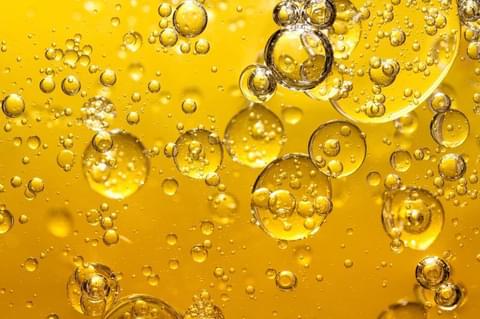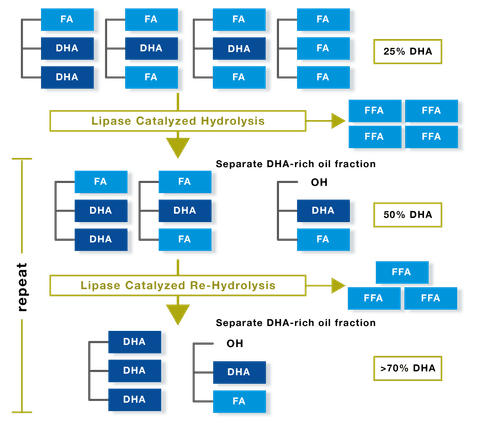

Biocatalysts Ltd launch new lipase for the hydrolysis & esterification of oils & fats
Lipases can be used to selectively hydrolyse triglycerides to liberate free fatty acids, Lipomod® 767P is a robust lipase enzyme that can hydrolyse short, medium and long chain fatty acids at all 3 positions on the triglyceride backbone.
Enzyme specialists, Biocatalysts Ltd, announce the launch of their new enzyme Lipomod® 767P, it is non-genetically modified microbial lipase preparation suitable for both the hydrolysis and esterification of oils and fats. Its broad spectrum pH profile means it can be used in applications across a wide range of substrate types. Lipases can be used to selectively hydrolyse triglycerides to liberate free fatty acids, Lipomod® 767P is a robust lipase enzyme that can hydrolyse short, medium and long chain fatty acids at all 3 positions on the triglyceride backbone. This flexibility makes it an ideal enzyme choice for the production and concentration of polyunsaturated fatty acid enriched oils such as Omega-3 from a range of fish, algae and oilseed sources.
In addition to hydrolysing oils and fats lipases play a key role in producing healthy oils through esterification reactions, rearranging fatty acid positions on the glycerol molecule to produce structured lipids which modifies their functionality for use in many food applications and can improve their dietary profile.
Lipomod® 767P, under appropriate conditions, can also be used for the esterification of oils and fats, its regio-, stereo- and enantio-selectivity in both natural and artificial substrates in aqueous or organic solutions makes it a very adaptable enzyme for oil and fat modification.
This product is an addition to Biocatalyst’s extensive range of microbial enzymes, which have been developed to meet the growing demand for clean label products.
